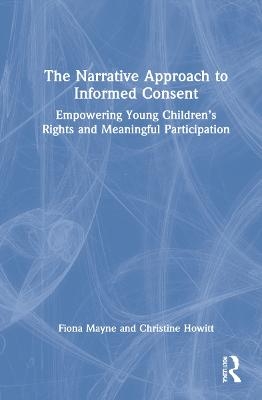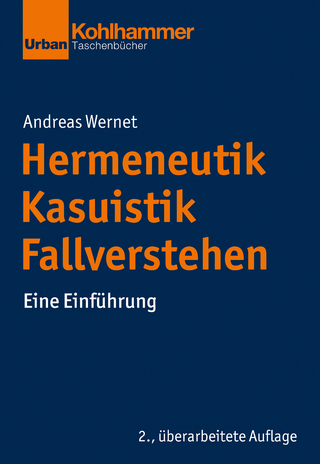
The Narrative Approach to Informed Consent
Routledge (Verlag)
978-0-367-35225-7 (ISBN)
The Narrative Approach to Informed Consent addresses the rights of young children to be properly researched, expands opportunities for their active and engaged research participation, and creates a unique conceptual ethical space within which meaningful informed consent can occur. This book will be an invaluable tool for novice and experienced researchers and is applicable to a wide range of education and non-education contexts.
Fiona Mayne is a lecturer and researcher in the Graduate School of Education at the University of Western Australia. Fiona’s PhD in early childhood research ethics and participation won the international European Early Childhood Education Research Association Student Research Award in 2017. Her current research is in children’s voice and agency, enhancing the quality of young children’s research participation, digital influences on children’s learning environments and associated pedagogies, and use of digital technologies and mixed reality in pre-service teacher education. Christine Howitt is an associate professor at the Graduate School of Education at the University of Western Australia. Her research interests focus on young children's science learning, science identity, learning in informal contexts, participatory research and rights of the child. She has worked extensively with Fiona Mayne to produce a range of papers on young children’s active involvement in the research process, exploring appropriate ethical and methodological approaches.
Introduction.
Part 1: Theoretical and methodological underpinnings of the Narrative Approach
Chapter 1. Positioning the child as competent in the research process
Chapter 2. The conceptual model underpinning the Narrative Approach
Part 2: Developing and implementing an Informing Story
Chapter 3. Developing and delivering an Informing Story
Part 3: Adapting an Informing Story
Chapter 4. "Yes, he gets it". Enhancing 3- and 4-year-old children's reserach participation through a digitally interactive Narrative Approach Informing Story
Chapter 5. Using a Narrative Approach Informing Story to engage 4- and 5-year-olds in research in the context of a study on the use of an augmented reality sandbox to enhance spacial thinking
Chapter 6. Using a Narrative Approach Informing Story video to gain informed consent from 6–12-year-old children on their experiences in youth care
Chapter 7. Parental roles in supporting their young children’s participation in research through a Narrative Approach Informing Story
Part 4: Future directions for the Narrative Approach
Chapter 8. Possibilities and challenges of the Narrative Approach
Chapter 9. Examples: The Toymaker Informing Story and the Toymaker Participation Story
| Erscheinungsdatum | 17.11.2021 |
|---|---|
| Zusatzinfo | 10 Tables, black and white; 12 Line drawings, black and white; 12 Illustrations, black and white |
| Verlagsort | London |
| Sprache | englisch |
| Maße | 156 x 234 mm |
| Gewicht | 453 g |
| Themenwelt | Sozialwissenschaften ► Pädagogik ► Allgemeines / Lexika |
| Sozialwissenschaften ► Pädagogik ► Bildungstheorie | |
| Sozialwissenschaften ► Pädagogik ► Vorschulpädagogik | |
| ISBN-10 | 0-367-35225-7 / 0367352257 |
| ISBN-13 | 978-0-367-35225-7 / 9780367352257 |
| Zustand | Neuware |
| Informationen gemäß Produktsicherheitsverordnung (GPSR) | |
| Haben Sie eine Frage zum Produkt? |
aus dem Bereich


